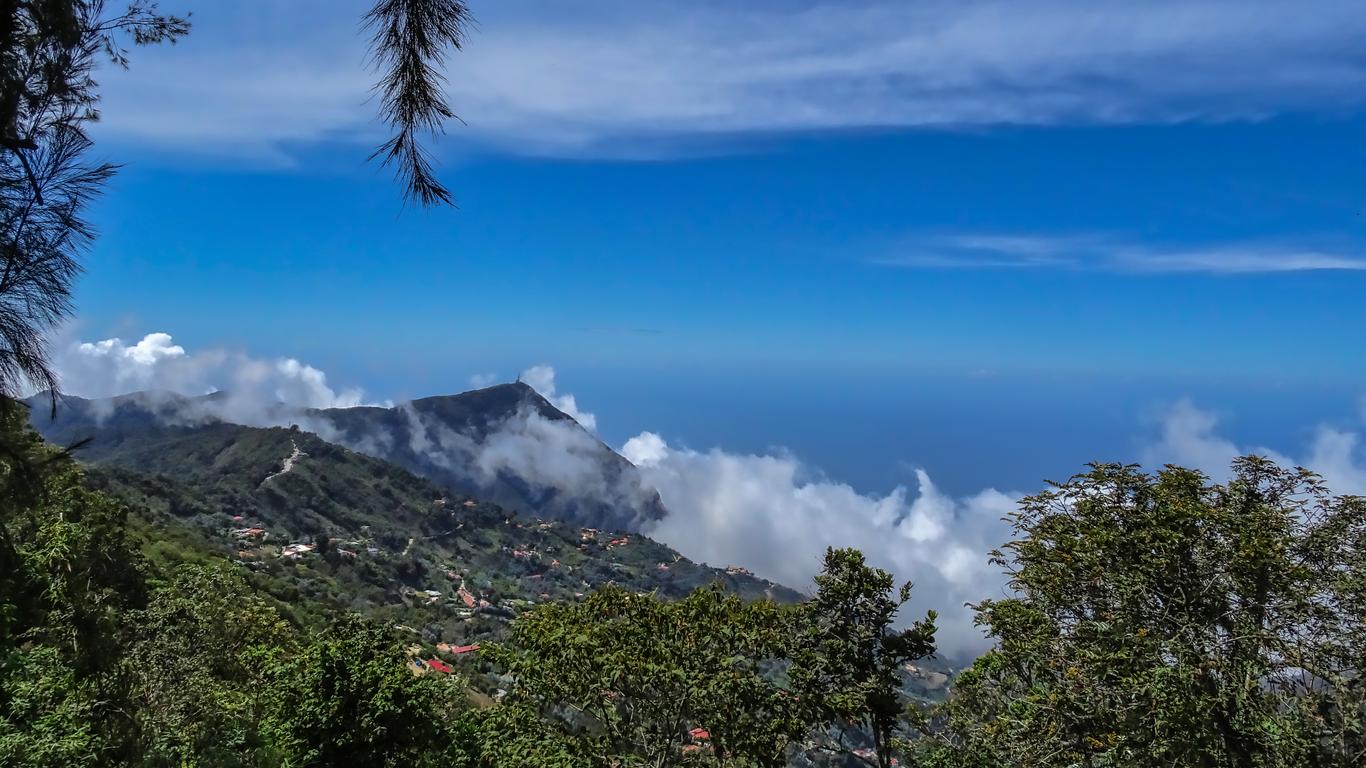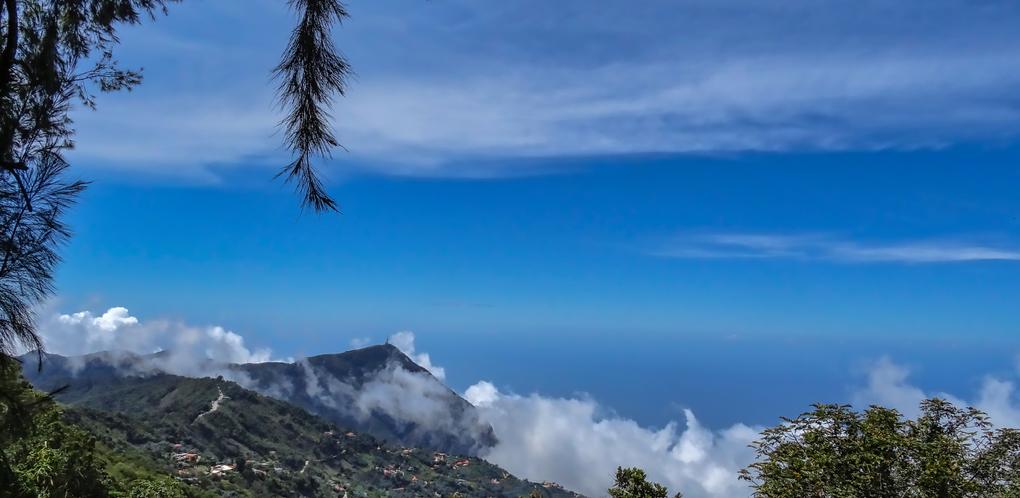
Caracas travel guide
Caracas Tourism | Caracas Guide
You're Going to Love Caracas
Caracas is the capital city of Venezuela, set in a beautiful valley overlooked by Avila Mountain. This is a city of great contrasts, excellent food, and edgy nightlife. There are some good museums, fine architecture, and one of the best galleries in South America at the Museo de Arte Colonial.

Top 5 Reasons to Visit Caracas
1. Its Natural Beauty!
Caracas has one of the most amazing settings of any capital city. Take the cable car up Avila Mountain to see the city to the south and the Caribbean Sea to the north.
2. The Food
Caracas' position on the coast and its varied European heritage results in an exciting mixture of Caribbean, European, and indigenous dishes.
3. The Parks
Walk in the Parque del Este and find the zoo, planetarium, and ponds with delightful turtles. Nature lovers will also enjoy the collection of tropical plants at the Jardín Botánico.
4. The Nightlife
Dance in the tasca bars around Sabana Grande or go for more upmarket cocktails in Chacao. Las Mercedes is the place to go for nightclubs.
5. The History
See the birthplace of Simón Bolivar at La Casa Natal de Simon Bolivar and explore Venezuelan history at the Panteón Nacional.
What to do in Caracas
1. Modern Masters On Display
Established in 1973, the Museo de Arte Contemporáneo de Caracas displays an international collection of paintings, sculptures, drawings, photographs and films from modern masters. With a permanent collection of over 3,000 works, the museum, directed by founder Sofia Imber, features artworks by Picasso, Miro, Leger, Chagall and Botero, among others. The museum has also featured temporary exhibitions spotlighting such renowned artists as Francis Bacon, Miguel Von Dangel, Alberto Magnelli, Marisol, Larry Rivers and Pedro León Zapata.
2. Center Of Venezuelan Culture
A private institution, the Fundación Bigott aims to preserve the values of traditional Venezuelan culture. Founded in 1981, the foundation offers programs designed for the educational enhancement of popular culture. The center features craftsmen and musicians, as well as programs on gastronomy, history, literature, music and popular art, among other subjects.
3. From Assisi To Bolívar
The Iglesia de San Francisco, a church in Caracas dedicated to Saint Francis of Assisi, was designed by Antonio Ruiz Ullán and constructed in 1593 as an annex of the Convent of San Francisco. The church is renowned for being the site where Simón Bolívar received the title El Libertador. His funeral was held at the church in 1842. The church features baroque altarpieces placed along both sidewalls, as well as a statue of San Onofre.
4. Homage To A Hero
Situated on the site of the National Pantheon of Venezuela, which was built in the 1870s on the former location of a ruined church, the Simón Bolívar Mausoleum features his bronze sarcophagus, as well as 1930s paintings that depict the life of the late 18th/early 19th century military and political leader. The mausoleum also showcases a crystal chandelier that was installed in 1883 on the centennial of his birth. The mausoleum was reopened in 2013 after an extensive restoration.
5. Hidden Church Treasures
Originally built in 1641, the Caracas Cathedral in the Plaza Bolívar houses a number of crypt chambers, including those of Simón Bolívar and his parents and wife. The cathedral features a Romanesque plan, which consists of five naves, as well as a main altar and altarpiece within the presbytery. The cathedral's organ, built in 1711 by Claudio Febres, a French immigrant, is one of the church's highlights. Among the artworks found in this holy place are The Resurrection by Rubens, the Presentation of the Virgin by Murillo, and the Last Supper by Arturo Michelena.
1. Modern Masters On Display
Established in 1973, the Museo de Arte Contemporáneo de Caracas displays an international collection of paintings, sculptures, drawings, photographs and films from modern masters. With a permanent collection of over 3,000 works, the museum, directed by founder Sofia Imber, features artworks by Picasso, Miro, Leger, Chagall and Botero, among others. The museum has also featured temporary exhibitions spotlighting such renowned artists as Francis Bacon, Miguel Von Dangel, Alberto Magnelli, Marisol, Larry Rivers and Pedro León Zapata.
2. Center Of Venezuelan Culture
A private institution, the Fundación Bigott aims to preserve the values of traditional Venezuelan culture. Founded in 1981, the foundation offers programs designed for the educational enhancement of popular culture. The center features craftsmen and musicians, as well as programs on gastronomy, history, literature, music and popular art, among other subjects.
3. From Assisi To Bolívar
The Iglesia de San Francisco, a church in Caracas dedicated to Saint Francis of Assisi, was designed by Antonio Ruiz Ullán and constructed in 1593 as an annex of the Convent of San Francisco. The church is renowned for being the site where Simón Bolívar received the title El Libertador. His funeral was held at the church in 1842. The church features baroque altarpieces placed along both sidewalls, as well as a statue of San Onofre.
4. Homage To A Hero
Situated on the site of the National Pantheon of Venezuela, which was built in the 1870s on the former location of a ruined church, the Simón Bolívar Mausoleum features his bronze sarcophagus, as well as 1930s paintings that depict the life of the late 18th/early 19th century military and political leader. The mausoleum also showcases a crystal chandelier that was installed in 1883 on the centennial of his birth. The mausoleum was reopened in 2013 after an extensive restoration.
5. Hidden Church Treasures
Originally built in 1641, the Caracas Cathedral in the Plaza Bolívar houses a number of crypt chambers, including those of Simón Bolívar and his parents and wife. The cathedral features a Romanesque plan, which consists of five naves, as well as a main altar and altarpiece within the presbytery. The cathedral's organ, built in 1711 by Claudio Febres, a French immigrant, is one of the church's highlights. Among the artworks found in this holy place are The Resurrection by Rubens, the Presentation of the Virgin by Murillo, and the Last Supper by Arturo Michelena.
Where to Eat in Caracas
Aranjuez is a good steakhouse on Calle Madrid and El Granjero del Este on Avenida Río de Janeiro does excellent local cuisine. A meal for two at either will cost around Bs500.
When to visit Caracas
Caracas has a tropical climate, with little variation in temperature throughout the year. Because it is approximately 2,700 feet above sea level, it is surprisingly mild, with temperatures rarely topping 82 degrees Fahrenheit.
How to Get to Caracas
Plane
The city's airport is Simón Bolivar International Airport, some 15 miles from the city center. A taxi into town will cost around Bs2,800. The bus into the city takes around 30 minutes and costs just Bs50.
Car
Caracas has the cheapest gas in the world (around USD$0.12 per gallon), so the roads can get very busy. There are good highways to Venezuela's other major cities, including Maracay and Valencia to the west, and Puerto la Cruz and Barcelona to the east.
Bus
The main bus stations are La Bandera, which connects the city with destinations to the west, and Terminal del Oriente, which serves destinations in eastern Venezuela.
Airlines serving Caracas
Where to stay in Caracas
The Gilmar Hotel is a good budget option on Avenida Guaicaipuro. At the other end of the scale, Gran Meliá is an excellent 5-star hotel on Avenida Casanova.
Popular Neighborhoods in Caracas
El Hatillo - is a beautiful colonial neighborhood with lots of good restaurants, shops, and bars.
Chacao - sitting at the foot of Mount Avila, it has lots of outdoor bars and restaurants and many of the city's coolest clubs.
Libertador - is the oldest and most historic part of the city, containing most of the government buildings and tourist sites, as well as the Universidad Central de Venezuela.
Where to stay in popular areas of Caracas
Most booked hotels in Caracas
How to Get Around Caracas
Public Transportation
The Caracas Metro is extensive and cheap, with single journeys from Bs4.
Taxi
Taxis are plentiful but fares vary wildly and you should expect to negotiate. A typical city journey may cost around Bs30.
Car
The streets are crowded, so driving can be a little hectic. Budget and Hertz outlets are in town, and car rental is available from around Bs200 per day.
The Cost of Living in Caracas
Shopping Streets
Centro Comercial Sambil is one of the largest malls in South America, and Altamira is the place to go to for upscale fashion stores.
Groceries and Other
A quart of milk will cost Bs10 as does a loaf of bread.
